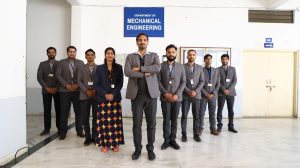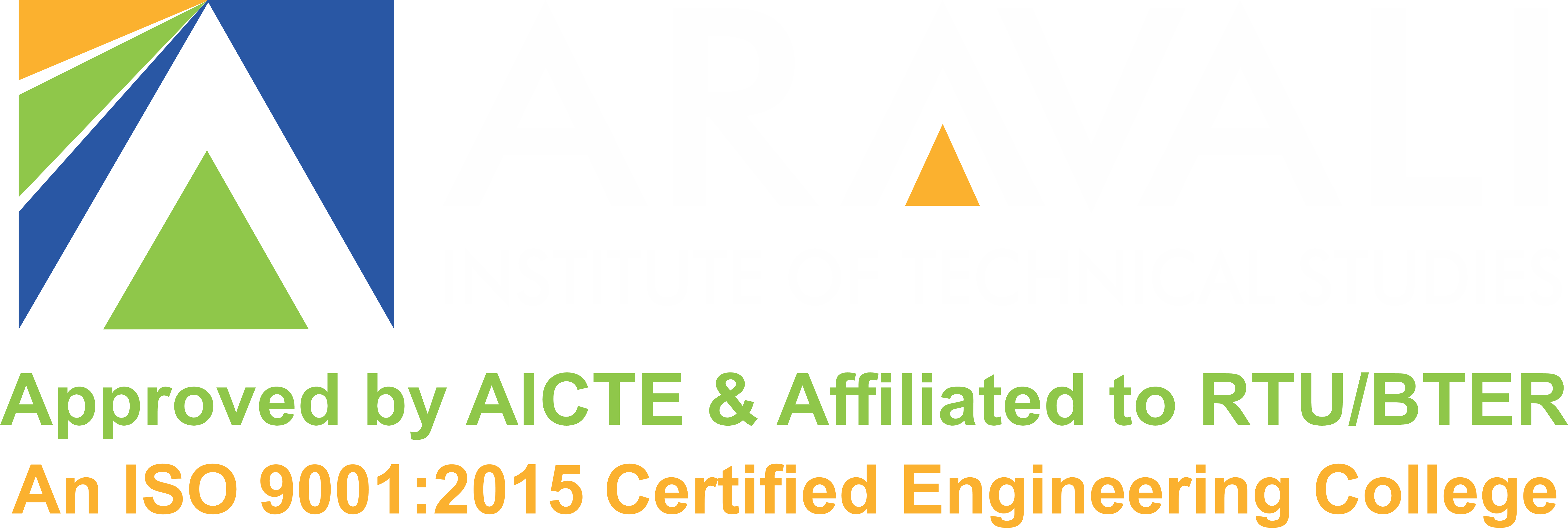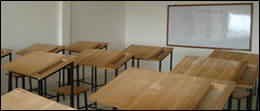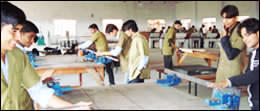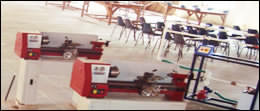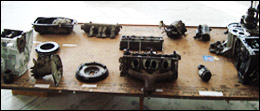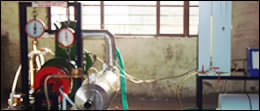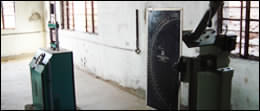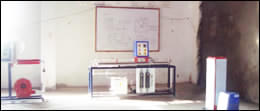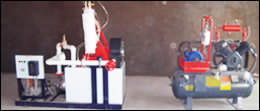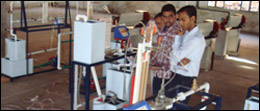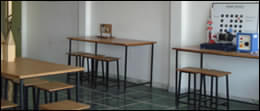Mechanical Engineering Department
Mechanical engineering is one of the major activities in engineering profession and its principles are involved in the design, study, development and construction of nearly all of the physical devices and system. By emphasizing both analytical and creative methods, it gives students the broad skills they need to pursue their goals – whether that means working as an engineer, founding a company or continuing with the post graduate study and research. The department was established with the inception of the Institute in 2008 with the vision to retain our status as one of the best mechanical engineering departments and continue to play one of the foremost roles in the development of the nation.
The curriculum of Rajasthan Technical University, Kota, Rajasthan lays equal emphasis on all major fields of mechanical engineering – Design engineering, Production engineering and Thermal and Fluid engineering. The students are taught many courses to develop a sound theoretical knowledge and good practical experience in all these areas.
Engineering Drawing
Drawing is the language of an engineer. it is the silent and compact language .it can be understood by the deaf and dumb persons .it gives information about the dimensions shape and size. It also gives the all information about the components for the manufacturer.
Mechanical Engineering Workshop
A well equipped workshop provides training facilities to students in machine, fitting, carpentry, welding and sheet metal shops under the guidance of well experienced faculty and technicians.
Production Engineering Laboratory
Students are given on hands training on geared head lathe machines complete with self centering chuck and other accessories, grinder, shaper, drilling machines etc. This helps students in getting confidence in working with workshop machines, a major component of mechanical engineering.
Automobile Engineering Laboratory
To develop in depth understanding of working of automobiles, cut working models of four and two stroke petrol engines, plate, centrifugal and multiplate clutches, disk brake lubricating system, fuel supply system for diesel and petrol engine, coil ignition system etc. are available in the laboratory.
Thermal Engineering Laboratory
The laboratory comprises of test rig of single cylinder engine with rope brake, locomotive boiler, lancashire boiler, benson boiler, cochran boiler spring loaded safety and feed check valves etc. to impart a good practical knowledge to the students.
Mechanics of Solids Laboratory
Material testing is an important component of mechanical engineering. UTM Machine, Rockwell-Cum Brinell Hardness Tester, Torsion Testing Machine, Pendulum Impact Testing Machine and Spring testing machine are available in the laboratory so that students have clear concept of the testing of various materials for their strength and quality.
Heat and Mass Transfer Lab
This lab is one of the strong laboratories in Mechanical Engineering department. Students are able to know about all the modes of heat transfer while performing sessional classes. Determination of thermal conductivity by Steady-State method, Radiation Heat Transfer, Thermal Contact-Conductance, Heat Transfer from extended surface, Boiling Heat Transfer, Heat Transfer by Forced Convection etc. are some major fields where students perform their experiments.
Design of Machine Element Lab
The lab focuses on blending fundamental development of concepts with practical specification of components. It also Cover the basics of machine design, including the design process, engineering mechanics and materials, failure prevention under static and variable loading, and characteristics of the principal types of mechanical elements.
Turbo Machine Lab
Labs equipped with the experimental setup for the turbine, compressor etc.which are main components of the power plants. By turbo-machine we mean a fan, pump, compressor, or turbine that changes the energy level of a flowing fluid by means of momentum exchange. Sometimes the term rotor dynamic machine is used for this class of machines to distinguish them from positive displacement devices. Turbo-machines are second only to electric motors in their number and are wide-spread in practically all industries, ranging in power levels from a few watts to more than 100 MW. Because of the requirements of aircraft jet propulsion, new power plants (both steam and gas turbine) and rocket propulsion research, development continues actively in this field today.
Fluid Mechanics Lab and Machine Lab
Fluid mechanics deals with the flow of fluids. Its study is important to physicists, in understanding phcnomena, causcs the various types of wave phenomena in the atmosphere and in the ocean, why a layer of fluid heated from below breaks up into cellular patterns, why a tennis ball hit with “top spin” dips rather sharply, how fish swim, and bow birds fly. The study or fluid mechanics is just as important to Aerospace engineers in designing airplanes that have low resistance and, at the same time, high“lift” force to support the weight of the plane. Civil engineers may be interested in designing irrigation canals, dams, and water supply systems. For Pollution control engineers in saving our planet from the constant dumping of industrial sewage into the atmosphere and the ocean. For Mechanical engineers in designing turbines, heat exchangers, and fluid couplings.
Material Science Lab
Materials are of a discrete nature, since they are made of atoms and molecules, in the case of liquids and gases, or, in the case of solid materials, also of fibers, crystals, granules, associations of different materials, etc. The physical interactions between these constituent elements determine the behaviour of the materials. This lab demonstrates the behavior of the material and the way the material deforms under the action of forces.and fluid couplings.
